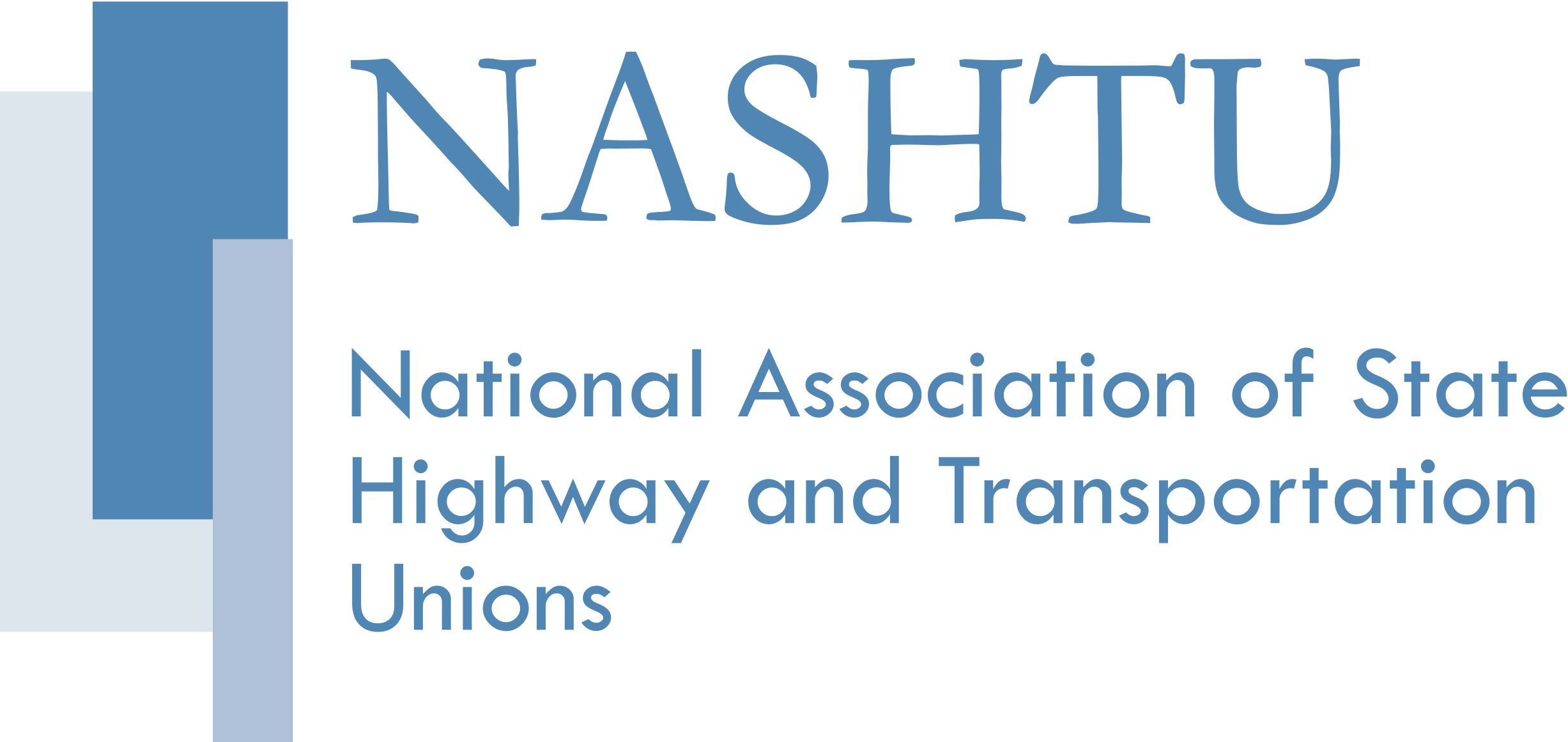Where Do We Go From Here?
NASHTU Conference Resolutions
Contracting for Transportation Engineering Services
The NASHTU Organizing Committee put together four resolutions which were adopted at the 2001 Conference. Attendees and others were encouraged to pursue these policies with the media, in legislation, and in other forums during the upcoming year. Similarly, a continuation program was outlined. During the Conference, Resolution and Continuation Committees were formed, met, and worked on the documents. In addition, a fifth resolution has been proposed.
The four resolutions follow, presented by Frank Spica, Michigan Public Employees/SEIU.
1. The Public Interest
In order to ensure that the public interest, rather than a profit motive, is best served, if a public transportation project is constructed by the private sector, such functions as construction inspection, materials testing, and surveying should be performed by publicly employed professional and technical employees. Project management throughout the planning, design, and construction phases should also be performed by public servants.
The construction contractor should not have any involvement in the selection of or the performance of duties by those responsible for inspecting and approving the construction.
To ensure that the public interest is served, when engineering or related functions require extensive application of independent professional judgment, such as facility design, a publicly employed professional should perform that function unless cost effectiveness, timely project delivery, or qualifications/expertise dictate otherwise. To accommodate and retain institutional memory and knowledge for the benefit of the public, it is usually preferable for public employees to perform these functions.
2. Cost Effectiveness
In instances where contracting for transportation services is consistent with the public interest, such contracting should occur only if an independent cost analysis concludes that it is cost effective compared to utilizing publicly employed professionals. The cost of providing the service – – salaries plus overhead – – for public servants should be compared to the cost to the public to contract out the services, including the cost to advertise and award the contract, the contract cost, and the public agency oversight cost. If using either alternative would delay construction, the public cost resulting from the delay should be included in the analysis. It is not acceptable for an agency to fail to hire sufficient employees to perform the functions if it would more cost effective to do so.
3. Consultant Qualifications
Consultants for engineering and related services should be selected based on consideration of their proven experience and ability as well as cost and timely project delivery. Consultant disqualification should be based on past difficulties regarding performance, timeliness, cost overruns, ethical problems, or other legitimate reasons. The contracting public agency should rate and evaluate the consultant’s performance after each contract.
4. Consultant Liability
Each consultant contractor for engineering and related services should be required to purchase and provide insurance or a bond to protect the agency and the public against liability which could occur after completion of the consultant’s work.
If the consultant performs a design function, the consultant’s insurance or bond should reimburse the public agency if maintenance costs for the facility exceed the average maintenance costs for a similar facility over the design life of the project (typically twenty years). The insurance should also protect the public agency against tort or other liability if the design is defective or if the future accident rate on the facility exceeds the statewide rate for similar facilities. If there are design flaws, the insurance or bond should pay for the redesign during the construction phase, as well as any added construction costs.
If the consultant provides construction inspection or related services, and if construction flaws are discovered later, the consultant’s insurance or bond should reimburse the public agency for any resultant repairs or liability.
5. Impact of Federal Funding
Resolved that this Conference shall endorse and actively pursue a hearing and study by the appropriate Senate and House committees on the impact of federal highway funding on personnel in the state Departments of Transportation.
